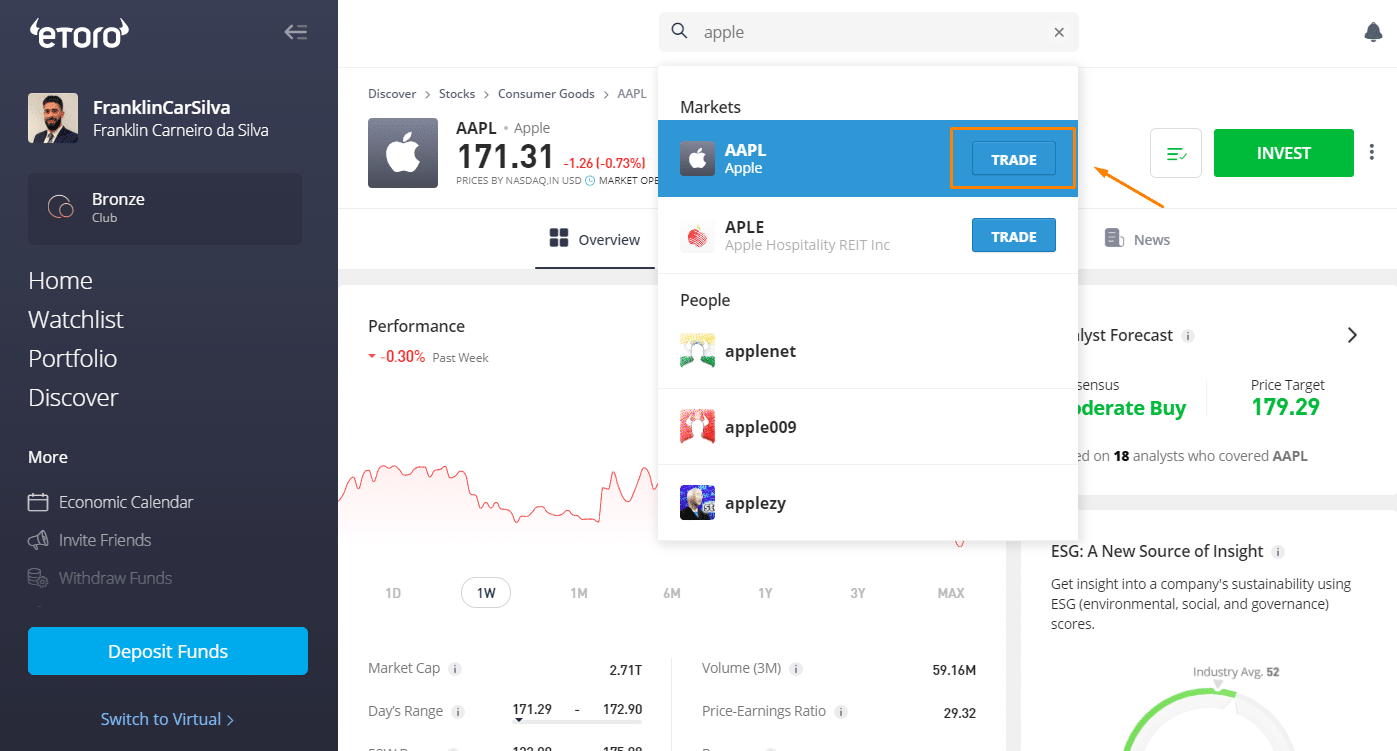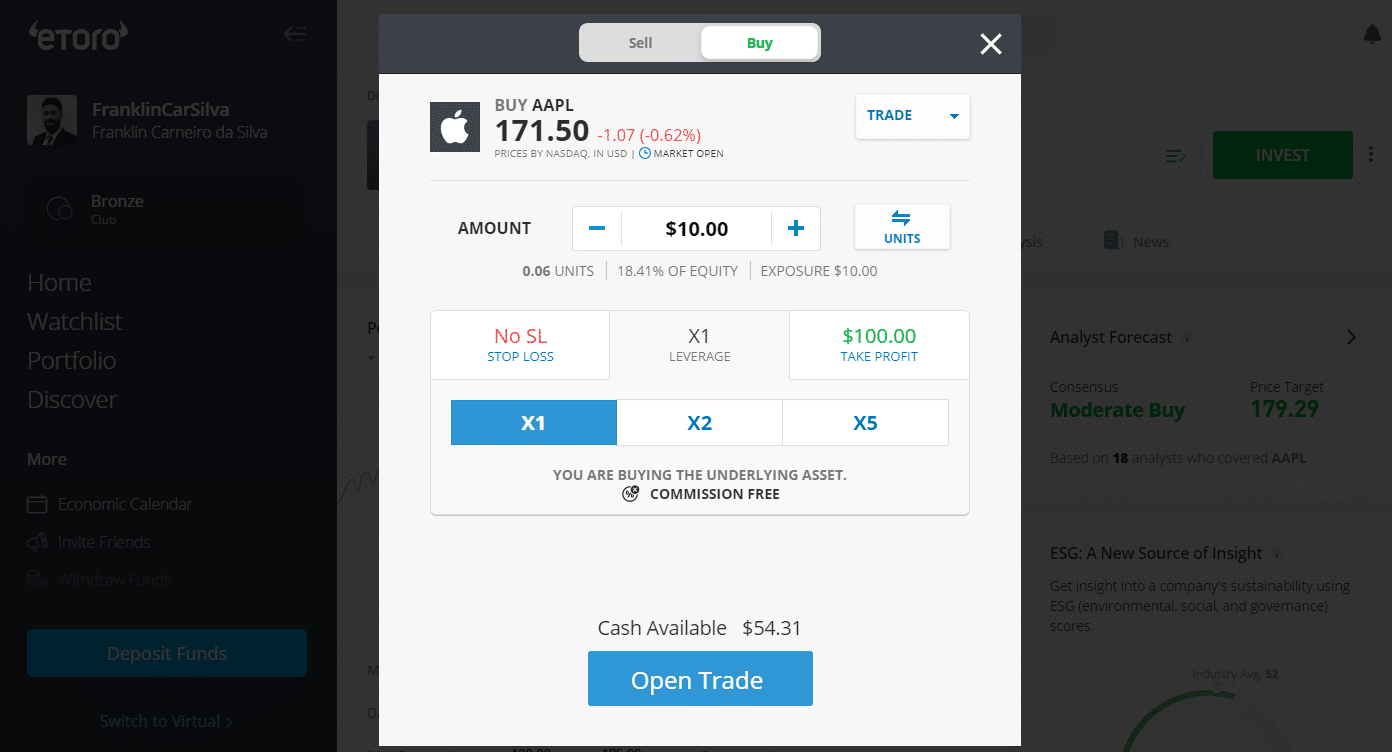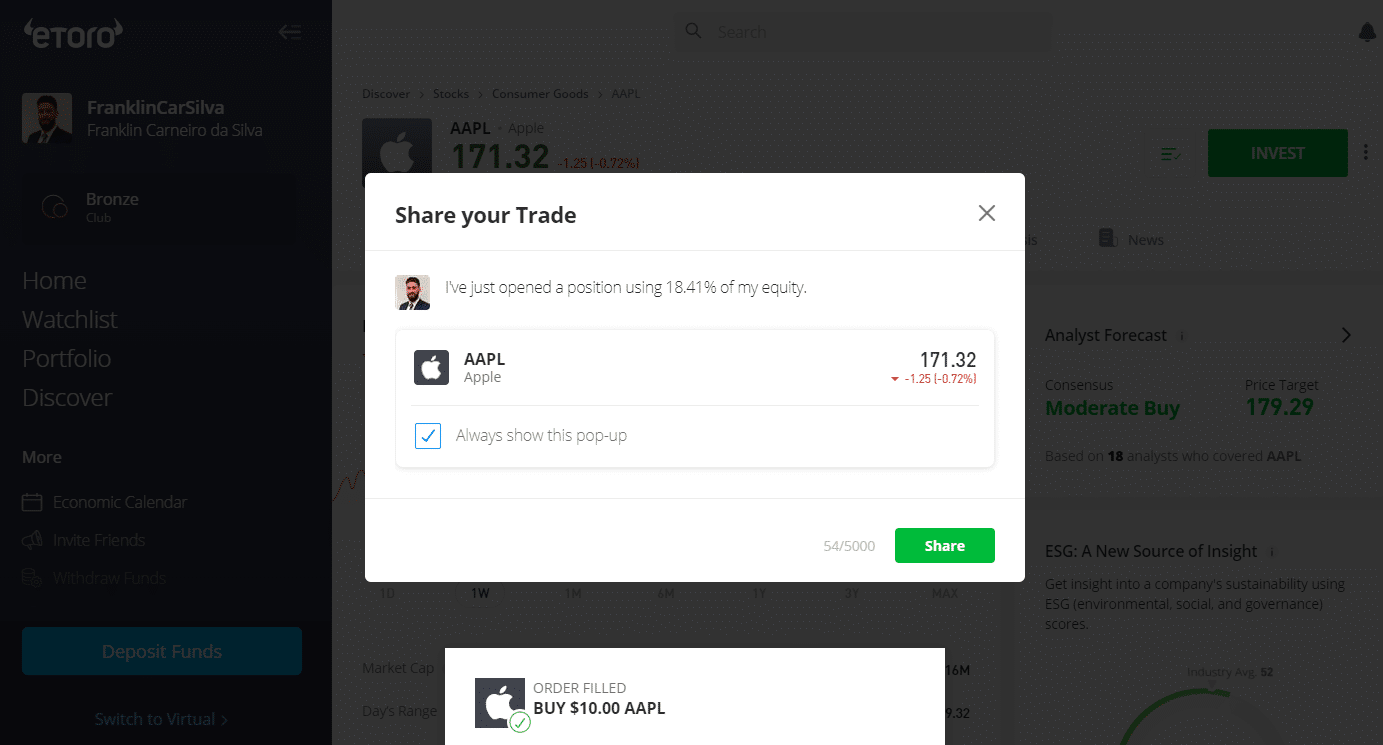Germany is the Eurozone’s largest economy, with its residents enjoying a very high level of disposable income. With money to spend, the question that naturally comes to mind is how to make the most of it. One easily accessible way to build and preserve wealth is through the stock market.
In this article, we’ll delve into ways for Germans to pick stocks, how to buy shares on the international markets, gain exposure to the national stock market, tips for choosing a stock broker to buy shares, opportunities for foreigners to gain exposure to German shares, and more!
Choose a stock to buy
Since there are tens of thousands of public companies worldwide, there is no silver bullet when choosing a stock to purchase. That said, generally, companies are divided in two ways:
- Value stocks: these companies are usually attractively priced in terms of price-to-earnings or other ratios but face slower growth going forward;
- Growth stocks: these companies offer a high long-term growth rate but are more expensive from a valuation perspective in the near term.
You can favour one type or diversify across both value and growth, with value companies in your portfolio to meet medium-term goals. In contrast, growth companies should be able to help you achieve your long-term aspirations!
Resources you can use are:
- Stock screeners such as Finviz
- Company reports, filings and presentations
- Macroeconomic and industry publications
In any case, make sure to consider several companies, evaluate their performance relative to competitors, and try to pick the most attractively priced business!
How to buy shares on the international markets (Step-by-step guide)
1. Choose a good stock broker
Once you have chosen the stock you want to invest in, you need to find a broker with whom you can make the purchase. Since Germany is well-integrated into global financial markets, there are plenty of brokers to choose from. Below we highlight five brokers which are available to residents of Germany:
| Broker | Stock commission, US | Minimum Deposit | Regulators |
| eToro | $0 (other fees apply) | $50 | FCA, CySEC, ASIC |
| Interactive Brokers | Tiered pricing: $0.0035 per share (min. $0.35) | €0 | FINRA, SIPC, SEC, CFTC, IIROC, FCA, CBI, AFSL, SFC, SEBI, MAS, MNB |
| DEGIRO | €1 (+€1 handling fee) | €1 | DNB and AFM |
| Trading 212 | €0 | €10 | FCA, CySEC |
| Scalable Capital | €0.99 | €1 | BaFin, Deutsche Bundesbank |
Disclaimer: Investing involves risk of loss.
2. Open and fund your account
Once you have weighed the pros and cons of each broker, you are all set to open an account. The process usually takes a few days as the broker verifies your identity. After the process is finalised, you must deposit money into your account.
3. Place a “Buy Order”
If you have found an online broker that suits your needs, managed to open an investment account, and made the initial deposit, you are all set to buy your stock. All you have to do is find the share within your chosen broker and place a buy order. For this example, we will use eToro:
1 – Search for the chosen stock (we will use Apple, ticker “AAPL”):
2 – Click “Trade”:
3 – Choose the order details. Now, it’s time to choose how to invest:
- Amount: You choose the amount you want to invest in Apple instead of the number of shares. In this way, your investments may be fully or partially in fractional shares.
- Units: As opposed to “Amount,” here you define the number of shares you want to purchase (note: you can buy using either “Amount” or “Units,” up to you!)
- Leverage: You can choose the level of leverage. “X1” means no leverage (if it were “X2” or above, you would not be trading real stocks, but CFDs on Apple stock instead). That’s why you see “you are buying the underlying asset.”
- Stop Loss: Define the maximum you are willing to lose before closing your position automatically;
- Take profit: Define the profit amount that makes you close your position automatically (if reached)
Stop Loss and Take Profit are not guaranteed and trading with leverage involves high risk.
Only the “Amount” (or “Units”) and “Leverage” are mandatory fields.
4 – Place the order:
Finally, click “Open Trade”, and a new window will show up where it says “order filled,” your exposure and lets you share your trade with other people.”
ETFs – an alternative way to gain exposure
ETFs, or exchange-traded funds, allow you to gain exposure to a dozen or even hundreds of companies with a single investment. ETFs can be a good option if you:
- Are unsure which specific stock to choose.
- Want to limit your portfolio volatility (usually, ETFs invest in companies in several sectors affected by vastly different factors, limiting your exposure to idiosyncratic risks).
- Are interested in following a specific theme in your investments (German stocks, technology stocks, real estate stocks, etc).
Some ETFs you may want to consider are:
- Lyxor DAX UCITS ETF (ticker LYXDAX) tracks the 40 constituents of the leading DAX index. The ETFs capitalizes dividends.
- Vanguard Germany All Cap UCITS ETF Distributing (VGER) is more diversified than LYXDAX, covering ~162 shares across the large, medium and small-cap spectrum. The ETF distributes dividends.
You are free to choose from thousands of ETFs investing worldwide.
Buying shares on Börse Frankfurt
The process of buying shares directly on the local market is very similar to the one outlined above for international securities. The exchange even has a detailed beginner section to get you started. As Frankfurt is only one of the trading venues operated by Deutsche Börse Group, the parent company behind German stock trading, you can find a list of members active on German markets here.
There are over 1.6 million securities available to trade on Börse Frankfurt. These include not only shares but also bonds, derivatives and other instruments.
The main benefit of buying shares on the local market is that you will not incur foreign exchange conversion fees from opening an account in USD, GBP or any other currency. This is because shares on Börse Frankfurt trade in Euro. If you buy Apple stock (on the US market), you would have to:
- Sell EUR and buy USD to open the trade
- Sell USD, buy EUR to close the trade
Thus, you would incur two foreign exchange fees in the process.
Some very large companies, such as Apple or Tesla, have a dual listing on Börse Frankfurt and are available to trade in EUR rather than USD. Thus, you can avoid the foreign exchange fee if you only trade international companies with a dual listing on Börse Frankfurt. The downside is that dual listing bid-ask spreads are a bit wider; furthermore, turnover is generally well below the main market listing.
Outside of dual-listed companies, the drawback of the local market is that you are limited to the instruments available to trade there, many of which are tightly correlated with Germany’s economic fortunes. Thus if you want to diversify your wealth worldwide, the best way is to invest overseas or pick an export-oriented company.
Accessing German equities as a foreigner
If you are an investor outside Germany and want to gain exposure to the country’s growth potential and stable institutions, the most straightforward way to buy German equities is through an ETF, as highlighted above.
As a highly developed financial market, various low-cost ETF options are available for German equities.
If you want to buy a specific German company, the best way would be to get in touch with one of the leading brokers listed above. The drawback is that you may have to incur foreign exchange fees only if you come from a country where the euro is not the main currency
Again, a small number of German large caps have a dual listing on the US markets. It is up to you to decide whether the wider bid-ask spreads and lower liquidity of dual listings are attractive enough to forego the foreign exchange fee.
Bottom line
To sum it up, here’s what you need to do:
- Choose a stock to buy. If you want to invest outside Germany, you need to carefully consider which company or ETF to pick, as there is a myriad of companies to choose from. The local market has thousands of local and international companies available to trade – more than enough for a diversified portfolio.
- Find a suitable stock broker: For international markets, make sure the broker works with residents of Germany. For the Börse Frankfurt, it is best to contact a local exchange member. In any case, consider the fees and market access of the broker.
- Open an account and deposit money: After deciding which trading platform to use, you must go through the account opening process and deposit money.
- Send a buy order to your broker for the stock you like: That’s the easiest part (the process is intuitive)! After having your brokerage account and the name of the company that you want to buy, you just have to place a trade!
We hope that this post addressed some of your concerns. Make sure to do your research to find the best investing strategy for you!
Happy investing!








